Basic Concepts in Psychiatry
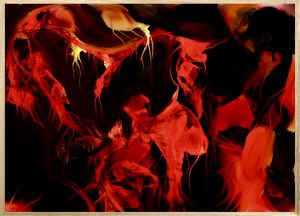
Psychiatry is a medical speciality that is greatly indebted to BOTH the sciences AND the humanities. Psychiatry cannot be understood or properly practised without a deep understanding of the humanities from which it emerged. This means understanding philosophy, literature, history and mythology.
Specifically, psychiatry involves medical training and then training in theories of the Self and mental disorder, as well as training in the process of psychotherapy. Psychiatrists generally follow the biopsychosocial paradigm . In other words, psychiatrists seek to understand human experience by reference to these fundamental domains.
For example, a person has a biological domain : physical illness, a certain age, physical injury, and a medical history. They have certain genetics and vulnerability to different illnesses.
A person also has a particular psychological makeup : personality, temperament, a belief structure, a philosophy, a way of seeing themselves and the world, certain anxieties and defences against those anxieties.
A person will exist in a social or sociological setting. This includes family both nuclear and extended, ancestors, a work environment, a family dynamic, and a type of wider society.
This is the most simplistic attempt to approach an accurate “formulation” of an individual. Certain theorists have added great depth, especially to the psychological and social / psychological domains.
Since Freud, the general population has become aware of the personal unconscious mind and the idea of conflicts. Freud also popularised the idea of the possibility of revealing hidden truths through a process of therapy. Many other psychological theorists have added to this.
Similarly, our understanding of the social and sociological aspects of the individual.
In summary, psychiatrists are medically-trained specialists in mental disorder, and hopefully think of their patients through some kind of prism that captures a holistic understanding of the biological, psychological and social aspects of the human condition. From this simple idea, there is a world of variation between psychiatrists. From here, I will explain the perspectives and theorists that have informed my style of psychotherapy. The DSM (currently version 5) divides mental health concerns into Axes, the most relevant being Axis 1 (major mental illness) and Axis 2 (personality structure and disorders), as well as Axis 3 (medical illness) and Axis 4 (stressors). DSM mirrors the biopsychosocial model discussed above. The DSM is a guidebook. Seeing people as DSM entities is an impoverished way to do the art of psychiatry.
The foundational book Psychodynamic Psychotherapy by Glenn Gabbard is the best general explanation of the basic tenets of psychiatry. Gabbard explains transference and counter-transference, defences, interactions between personality disorders and major mental illness. He also explains central concepts such as projective identification.
Psychiatrists have a very well developed schema of ethical rules. These concern appropriate boundaries. Each psychiatrist will always have their own personality of course. Human to human respect and connection is essential to therapy succeeding. Therapeutic alliance is essential. Never engage in therapy with someone you do not have a positive feeling toward, and who doesn’t behave in a respectful and caring manner towards you.
Everything mentioned above should apply to all psychiatrists trained in Australia and NZ.
……………………………………………………………………………………………………………………………….

psychotherapy with Dr Forster explained & made transparent:
– often focused on living with neurodivergence (Adult ADHD & ASD)
– founded on philosophically-informed psychotherapy
– focused on meaning & self-understanding
– mentoring (NOT self entrepreneurship or reinforcing grandiose narcissism)
– help with challenging relationship dynamics
– attaining synergy by committing to intersession notes
– creating a space in life for reflection & self-awareness
– seeing and integrating the Shadow (the darker part of you)
– focused on practical issues as much as understanding
– working in the Transference (& counter-transference)
– working in the here and now
– understanding how the past impacts the present unconsciously
BA (double major 20th century Continental Philosophy….Nietzsche, Heidegger, Schopenhauer) at University of Old.
LLB Hons (how the legal, rationalistic mind thinks / the legal landscape we live in / medicolegal topics, interaction between psychiatry and the current legal landscape) at QUT and UQ.
MBBS (how doctors think, what illness is, how to understand the sociology of the medical system) at UQ Medical School.
Hospital Training…intern, resident, pho, training registrar, psychiatrist (PAH, The Park – Centre for MH, other locations)
Clinical Experience… schizophrenia, major depression, bipolar disorder, severe personality disorder, forensic psychiatry, combat PTSD, generational trauma, boundary formation & the prevention of further trauma, surviving & flourishing despite toxic workplaces, augmenting strengths / turning vulnerabilities into strengths, resolution of dysfunctional narcissism, seeing the bigger sociological context, longer term psychotherapy, active avoidance of power games & commitment to a collaborative therapeutic “I and Thou” alliance, couples therapy …..extra clinical experience in tertiary forensic hospital and the only Qld long stay centre for those with severe Autistic Spectrum Disorder.
FRANZCP (specific training in psychiatry in the public and private systems, written general med exam, psychotherapy case essay , clinical viva in different state, all assessment passed on first attempt)
Attendance of national and international conferences on psychotherapy
Contribution of psychodynamically-inspired visual art to 5 covers of the Australasian Journal of Psychiatry
My approach to psychotherapy is a product of psychotherapy theory as well as the ideas of philosophers and writers across many fields. I will give a concise list. The common theme is an attempt to understand Meaning and they are therefore fundamentally relevant to psychiatry. Our society has successfully created a Forgetting of much of our intellectual inheritance. Certain books are recommended reading for anyone interested in learning about how to be psychologically minded, an untaught set of skills we so desperately need. No intellectual approach is useful without a foundation of authentic care.
INFLUENCES
C.G. Jung and the Jungians / Analytic Psychology..Individuation, the collective unconscious, mythic archetypes, introversion/extroversion, the Shadow, the Persona, the need for the Integration of the Shadow, the symbolism of the big or recurrent dreams, critic of scientism, foolishly rejected by mainstream biological psychiatry but embraced by many philosophers, psychologists and artists. Coined the concept of synchronicity, “ an acausal connecting principle”. A series of academic writings as well as classic auto/biographical volumes such as “Memories Dreams and Reflections”, “Liber Novus”, “The Red Book”, “The Black Books” which are as relevant to philosophy, anthropology and art as much as to psychotherapy. His academic books include “Dreams”, “Four Archetypes”, “Mysterium Coniunctionis”, etc etc. My primary orientation is Jungian.
Jungian Links with Later Psychotherapists…the Jungian Reflective or Symbolic attitude is the ability to think symbolically, in the language of the Unconscious, which reflects an inherent search for meaning…Fonagy‘s “mentalisation” is similar, Bion’s concept of “thinking” is reflective and symbolic, Bion’s “negative capability” is Keat’s idea of living with a sense of the mystery of the Unknown; it has been noted that contemporary psychoanalysts have become more open to the transcendent and the numinous as an antidote to the psycho-spiritual flatland of the post-modern personality (see Gordon and Tennes’ discussion of these Jungian trends in the work of Bion, Winnicott, Bollas, Grotstein, Eigen leading to a greater awareness of the mysterious, numinous and transpersonal aspects of the analytic encounter.) In other words, Jung lives on in the most contemporary practitioners. See Jungian Psychoanalysis by Mark Winborne.
Bion…like Jung, Bion sought to help psychotherapists find a living, metaphorical language to access the Unconscious Self of their patient. Bion developed Kleinian concepts of projective identification and described something similar to Jung’s Transcendent Function, the ability to synthesise life experience into a sense of meaning (the Alpha Function and the Container Contained)
Freud…the personal unconscious, inner conflicts, mental health is “to love and work”, or transmuting “neurotic misery into common unhappiness”. And “Everywhere I go, I find a poet has been there before me”. Unfortunately Freud was reductionistic and focused on repression of sexual fantasy. Jung left Freud because of his rigidity and limited perspectives.
Melanie Klein…Object Relations, infantile experience, splitting, projective identification, maturation from the paranoid schizoid position to the depressive position from which one can see others in a non-binary way, realistic way.
Otto Kernberg….modern object relations, emphasis on transference-focused psychotherapy, borderline personality organisation system, and a nice guy to actually meet, besides Kohut a source of nuanced theory of normal vs pathological narcissism
Yalom….existentialist and humanistist theorist, great example of how psychiatry, philosophy and creativity can lead to a meaningful way of helping oneself and others, author of When Nietzsche Wept and other classic novels. Also wrote the classic text Existential Psychotherapy, Recent book on how he sees patients for one session in his 90’s and still brings about change “The Hour of the Heart”.
Camus, Sartre / Existentialism on authenticity and making meaning. Existentialism must be understood and seen critically because its shadow side is a kind of nihilistic isolation.
Kohut / Self-Psychology on healthy vs pathological narcissism, idealizing transference, twinship transference, mirroring, the importance of functional narcissistic dynamics….a true standout in psychiatry of the 20th century, almost always relevant to understanding personal psychodynamics imo. Repairing our narcissistic wounds was really made possible from Kohut’s insight into healthy self-esteem. The psychodynamic relationship thus has to be built on mutual respect.
Iain McGilchrist “The Master & his Emissary” & “The Matter with Things”…contemporary thought leader...how the hemispheres of the brain “think differently”, and our society is in crisis because it favours one form of thought to the detriment of the other, more essential form of thought. Critiques the rise of irrational bureaucracy, power & control , the dominant attitudes of the Left Hemisphere. The loss of spontaneity. Critiques AI and machine-like algorithms that stifle free thought. Critiques scientism and the possibility of a non-mechanistic Sacred. Critique of a trustless society and the loss of confidence in institutions once trusted. A loss of vitality in people and rise in depression and other mental illness since the 1950’s. Alienation by technology. Loss of purpose and reductionist materialism ascendant. Disregard of the humanities as “useless” and the loss of critical thinking. Critique of Existentialism as withdrawal from social responsibility . Leading contemporary psychiatrist /philosopher/sociologist. Recommended reading.
Robert Cloninger…early expert in personality that attempted to write (in the 2000’s) a convincing, holistic survey of the nature of mental health, including an analysis of the need to exist in the service of self-awareness & higher less narcissistic perspectives….brilliant book blandly titled “Feeling Good : the Science of Well-Being”
Nancy McWilliams….gifted and unpretentious psychodynamic writer whose work is readable by the public, full of insights. Most recent work is on the topic of supervision and is brilliant.
Kay Redfield Jamison…..leading psychiatrist and expert in Bipolar Disorder, known for surviving a severe form of the illness, which she described in a series of autobiographical books
Byung-chul Han, contemporary Korean German philosopher, books such as “The BurnOut Society” 2015 and many since. One of the most penetrating critiques of our current societal crisis available , in the Continental philosophical tradition. He critiques our own driven productivity as a source of our high rates of burnout, depression and malaise. A metaphorical thinker who connects our mental health crisis with “the narcissistic swamp”, the Transparent Society, the digitisation of life, the post-disciplinarian society, endless work and the decline of critical thought. Best books : the Crisis of Narrative, the Scent of Time, Saving Beauty, Non-Things, Vita Contemplativa and What is Power?. I consider BCH the leading contemporary philosopher writing today. His books prove that insight is inversely proportional to the length of the text. Strongly recommended reading.
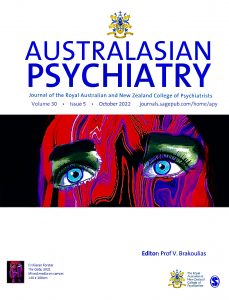
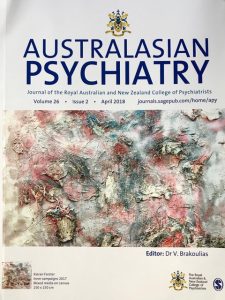
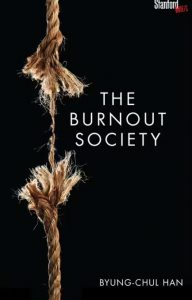
Byung-chul Han
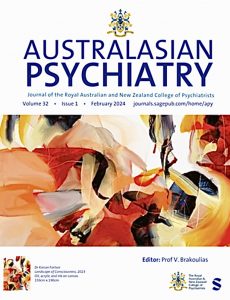

Byung-Chul Han
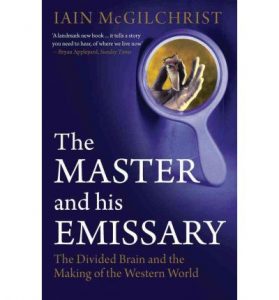
top 5 books
Heidegger, important and controversial philosopher, “Being and Time”….questioning the ultimate nature of being, Dasein “being-there”, “throwness” into life, Angst (dread), authentic “Being-towards-death”, temporality, “Science does not think” (critique of scientism), “To Think is to Thank” (why think philosophically), Facticity (the vital actuality of the human being, the “givenness of life”), critique of technology as a threat to Dasein’s authenticity, Heidegger’s “Turning” toward new insights later in his life
Eigen…contemporary psychotherapist influenced by Bion and Winnincott among others. Reading Eigen is an experience of true “symbolic” or “metaphorical” thinking. I stand amazed by the range of descriptions he applies to the nuances of mental states. What we can describe, we can work with and process. A more recent discovery.
Ellenberger……”The Discovery of the Unconscious”, seminal volume charting the development of psychoanalysis and the idea of the Unconscious Mind, essential reading
Husserl…..phenomenology, life as what is experienced, concept of “life-worlds”,
Kierkegaard…in retrospect, an early proto-existentialist, much of his writings (“Either/Or”, “The Sickness Unto Death”, “Fear and Trembling”) dealing with the essential inwardness of humans, and the dynamics of the inner life not being easily reducible through Reason, the central question is How should I live?, with Heidegger and Sartre one of the “Fathers of Existentialism”
Kuhn…”The Structure of Scientific Revolutions”, how thought develops in leaps
Hegel
Habermas
Levinas
Lacan…deep symbolic system about the Self as an elaboration of Freudian theory
Hannah Arendt….the “banality of evil” vis-a-vis the Nazi Experience, emphasis on action, student of Heidegger
Adorno….”the administered world”, a new post-WW2 “self-legitimising bureaucracy of the irrational”
Jaspers…phenomenology or experiential reality of mental states & disorders…definition of delusion as “Un-understandable”….very important early psychiatrist philosopher
Schopenhauer……philosophical Idealism, practical philosopher, early understanding of the concept of Individuation
Nietzsche…..where to start?, herd mentality, the Ubermensch, “we are responsible for the death of God” (his most remembered statement is about our loss of the ability to experience God IMO), the idea of Eternal Recurrence, Amor Fati (love of fate), a warning about the loss of meaning in the coming Modern Age. Modern philosophy sits on the shoulders of Nietzsche.
Stoicism…..Epictetus, Seneca, Marcus Aurelius
Foucault….the analysis of the power structures in the disciplinary society (BCH states we now live in a neo-liberal society with great freedom and we exploit ourselves, in contradistinction to the disciplinary society)
Aristotle…the vita contemplativa…the contemplative life, concepts of wisdom and virtue, first serious mention of “Being”
Schema Therapy by Young…….social / psychological scripts that exist in the unconscious or in partial consciousness, for example the Incompetence Schema, practical pervasive biases
Bowlby….Attachment Theory, we all develop a kind of attachment to our parent/s, eg anxious attachment style, that bleeds into your emotional connections to significant others throughout life
Erik Erikson …Theory of Psychosocial Stages : trust vs mistrust, autonomy vs shame & doubt, initiative vs guilt, industry vs inferiority, identity vs confusion, intimacy vs isolation, generativity vs stagnation, integrity vs despair
David Bohm…concept of sustained incoherence in a rule-based or management-dominated system.
Carl Rogers…psychotherapy only “works” from a foundation of “unconditional positive regard”. I almost agree but more importantly, Rogers points out that unless there is a therapeutic alliance involving basic mutual respect, psychotherapy cannot succeed as a change agent.
Martin Buber….”I and Thou” is the fundamental requirement for there to be a meaningful relationship between people…he is suggesting that meaning requires a basic and reciprocal respect between people, the polar opposite of seeing others as means to an end.
Simone de Beauvoir….writer of “the Second Sex”, early feminist and existentialist
Finnis….moral philosopher who argued strongly for an objective morality based on the 7 Basic Goods including Play, knowledge, life, aesthetic experience, friendship, and practical reasonableness. Finnis arguably bridged the is/ought gap in previous moral philosophy.
Wittgenstein….”A new word is like a fresh seed sown on the ground of discussion’…the power of using words to describe our experience, as opposed to merely fitting into a Dr’s pattern recognition system & being labelled
William James…”The Principles of Psychology”, 1890, early attempt to classify psychological states
Earnest Becker….”the Denial of Death”
Viktor Frankl…..psychiatrist who wrote “Man’s Search for Meaning”, survived a concentration camp during the Shoa, created “logo therapy” based on the search for meaning as the core of mental health
Eastern philosophers : Advaita Vedanta and Buddhism. Here there are alternative conceptions of the Self and a metaphysical link to many famous Western philosophers. Yoga and meditation. Concepts of Emptiness and No-Self. Ramana Maharshi, Self Enquiry meditation, philosophical Idealism (many versions). Special mention : Pema Chodron, “When Things Fall Apart”
Strassman…..”DMT the Spirit Molecule” and the cutting edge of modern psychiatry (psychedelic-assisted psychotherapy), MAPS and the imminent psychedelic era
Mark Fisher…critic of late modern capitalist society and the commodification of everything. Coined the term “depressive hedonia” which describes the psychological emptiness of living in a society lacking true creativity and where personhood is replaced by a corporatised, consumerist enslavement of dopamine depletion. Dovetails with BCH’s critique.
Esther Perel…..the author of “Mating in Captivity” and other books on romantic relationships
…………………………………………………………………………………………………………………………………………………………………….
Other Writers of Particular Relevance to Psychotherapy…..(very subjective random list)
TS Eliot The Hollow Men, The Waste Land, The Love Song of J Alfred Prufrock, Four Quartets…modernism and the beginning of the meaning-starved Self
Walt Whitman Song of Myself, transcendentalism, the effulgence and immanent meaning of a peopled world
Harold Bloom…literature professor and author of many books on how to read intelligently and consciously
Dostoyevsky….although known for his novels, D. is also very much a philosopher of the human soul
Rilke…..poet of a great silence
Hermann Hesse…philosophical novelist, wrote Steppenwolf, Siddhartha and The Glass Bead Game
Borges….philosophically challenging short stories
Kafka….short stories that create a dissociative yet challenging experience, existentialist orientation
Conrad…..”Heart of Darkness’, archetypal novella ostensibly about colonialism on the Congo but more deeply, about the personification of the darkness of the 20th century (and the 19th), so powerful that the fundamental story was transposed into the film Apocalypse Now set in the Vietnam war.
Camus….”The Outsider” aka “The Stranger”, “The Myth of Sisyphus”, “the Plague”…..acutely existential novels
Huxley…The Doors of Perception
Sylvia Plath…The Bell Jar
Yoko Ogawa….wrote recent novel The Memory Police which describes the forgetting and disappearance of important objects and memories on a fictional island. This novel captures the thoughts of Heidegger and Arendt as well as BCH.
…………………………………………………………………………………………………………………………………………………………….
The Philosophy of Science…..defining “disorder”, understanding the new wave of neurodivergent diagnosis (both ADHD and ASD) in a sociological context, the necessity of being a critical thinker
Diet……Huberman Lab Podcast
Exercise…..Huberman Lab Podcast
Breathing Exercises…..the importance of the physiological sigh, box breathing, re-balancing the sympathetic and parasympathetic nervous systems, yoga nidra, all good books on yoga
Meditation….the basic activity we often neglect
Psychopharmacology ….the best book that the general public can understand is Stahl’s Essential Psychopharmacology
…..